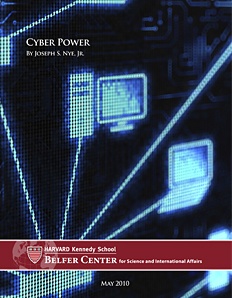
The project aims to improve the response to ICT crime and the transnational organised crime groups that may be involved in it, by outlining the criminal profiles of the different types of hackers, with particular emphasis on their possible involvement in transnational organised crime activities and cyber-terrorism. Through a better understanding of hackers, HPP will facilitate the prevention and countering of ICT crimes and will improve the operational methods that may lead to the identification of computer intruders.
||

This book is an attempt to apply the behavioural science of Criminal Profiling to the hacking realm. Its main objective is to provide a new means of investigation in order to deal with issues related to cybercrime. But there is a lot more to discover…
Computer networks are commonly thought of as unfathomable and invisible, beyond our grasp; a hacker is someone who can still see the joins and this is what makes him interesting though remaining a complex, original and controversial personality.
Aware of the lack of information, which prevents people from adequately understanding the phenomenon of hacking and its many related aspects, the authors' desire is to provide more insight into this realm by telling interesting anecdotes as well as describing bizarre characters that practice hacking and cracking as an art, following different but established ethical models. Providing an in-depth exploration of the hacking realm, focusing on the relation between technology and crime, the authors reveal hidden aspects and many interesting details answering questions like: Who are real hackers? What life does a hacker lead when not on line? Is it possible to determine a hacker's profile on the basis of his behaviour or types of intrusion?



